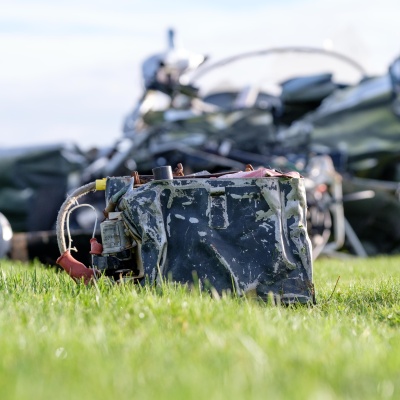It is with great sadness that we learnt of the death of Frank Taylor, the founder of the Cranfield University Aircraft Accident Investigation course. He educated, inspired and challenged thousands of safety professionals around the world and leaves an incredible legacy for which he will always be remembered.
Frank joined Cranfield in 1967 and developed his interests in accident investigation, establishing the now world-renowned Aircraft Accident Investigation course in 1977 in collaboration with what is now the Air Accidents Investigation Branch - UK (AAIB). With his team at the University, Frank worked with the AAIB on several major UK incidents including the British Airtours B737 at Manchester in 1985, and the Pan Am B747 at Lockerbie in 1989.
He created the Aviation Safety Centre which later became the Cranfield Safety and Accident Investigation Centre, and was a prominent member of what is now the Centre for Air Transport Management. A much-loved member of the University for over 35 years, Frank continued to contribute to the University as a visiting lecturer for many years beyond his retirement.
Frank was an active member of the International Society of Air Safety Investigators and in 1996 was awarded its highest honour - the Jerome F. Lederer Award for outstanding lifetime contributions to technical excellence in furthering aviation accident investigation.
Graham Braithwaite, Director of Transport Systems and Professor of Safety and Accident Investigation said: “The timing of Frank's passing is especially poignant. The largely successful outcome of the recent ground collision in Japan is in part a result of Frank's work on fuels and more widely in aviation safety and accident investigation. Frank was always modest about his achievements but as one of his proud peers, I know he made a huge and lasting contribution to aviation safety, and also to Cranfield’s standing in the world.
“I hope that we have been able to build on the strong foundations he laid. Throughout, we’ve retained his focus on delivering practical, evidence and experience-based training.”
